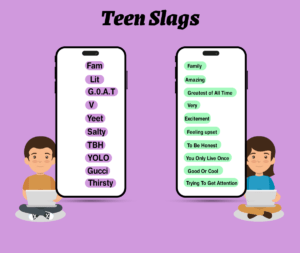Overview
A psychological manipulation technique known as “gaslighting” causes the victim to doubt reality, which frequently results in confusion, doubt about themselves, and a loss of confidence. For Highly Sensitive People (HSPs), who are more susceptible to these kinds of methods because of their increased sensitivity and empathy, this is especially harmful. This article describes typical gaslighting approaches, analyzes the connection between gaslighting and HSPs, and provides recovery and protective procedures.
Recognizing Gaslighting and Highly Sensitive People
The victim of gaslighting is tricked into questioning their own sense of reality and sanity. HSPs and empaths are particularly vulnerable to gaslighting because of the tendency to doubt their sense of self and reality. Because of their increased self-doubt, manipulative people find them to be easy prey.
The Word "Gaslighting" Origins
In Patrick Hamilton’s 1938 drama Gas Light, a wife is tricked into thinking she is going insane by her husband. This is where the word “gaslighting” first appeared. The 1944 movie adaptation starring Ingrid Bergman helped popularize the idea. These days, any circumstance that causes someone to question their own sanity or reality perception is referred to as gaslighting.
Why Gaslighting Is More Likely to Affect HSPs
There are various reasons why Highly Sensitive people are more likely to be gaslighted:
Self-distrust and intuitiveness: HSPs are prone to doubting their observations and intuition, which increases the likelihood that they would accept the twisted version of events that a gaslighter presents.
Emotion-related self-regulation: Because of the emotional overload and continuous sensory input, HSPs may find it difficult to control their emotions, which makes them more susceptible to manipulation.
Argument Resistance: HSPs shy away from confrontations and may repress their emotions to keep the peace, making it simpler for gaslighters to control them without encountering resistance.
Empathy & Being a Caregiver: Because HSPs are naturally good at helping others, even narcissists and manipulators who prey on their empathy, they are frequently drawn to those in need of assistance.
Typical Gaslighting Approaches
Gaslighters use a variety of strategies to influence and manipulate their victims. Here are a few typical tactics employed to counter HSPs:
Deny Reality: Gaslighter continually denies events or information that they know to be true.
Doubting Reality: The victim is certain that they are making things up or are imagining experiences.
Acting like Innocence: To make the victim seem unreasonable or confused, the gaslighter presents themselves as ignorant of the topics the victim is discussing.
Hide Information: The victim is not given important information, or they are given incorrect information.
Play down Emotions: The victim’s feelings, ideas, and experiences are minimized or disregarded.
Switching the Topic: By distracting the conversation of the subject, the main problem is avoided.
Shifting the blame: Using shame and guilt, the victim is frequently made to feel accountable for the abuser’s actions.
Shaming Separate Views: The victim is pressured to adopt the gaslighter’s viewpoints by being ridiculed and embarrassed for following their own path.
Wanting Justification: The victim experiences self-doubt and overthinking as a result of being pressured to defend their thoughts, feelings, and behaviors.
Entering Disputes as Bait: The gaslighter enjoys provoking conflicts with the victim by treating everything as a battle that needs to be won at all costs. The victim’s needs are not taken seriously, which leads to dysregulation and more confrontation.
Charming Trickster: Gaining trust through charm and kindness while subtly manipulating the target.
Putting the blame on for Their Moods: By employing lines like “I was fine before you showed up,” the victim is made to feel accountable for the gaslighter’s emotional state and is then held accountable for any afterward negative emotions.
Fear: The gaslighter accuses the victim of being ungrateful, uncooperative, or self-centered when they set limits.
Pulling into Controversy: To demonstrate the gaslighter’s authority and significance, the victim is frequently forced into contentious situations.
Wear out: The gaslighter’s dogmatic and unrelenting tactics are intended to wear down the victim.
Covering Actual Nature: Like in a relationship during the “honeymoon,” a gaslighter may initially try to cover up their self-centered behavior, but gradually their true personality comes to light.
Gaslighting can sometimes occur unintentionally
It is important to understand that gaslighting is not necessarily motivated by hatred. When a person, frequently unintentionally, minimizes or invalidates someone else’s feelings, perceptions, or experiences, it’s known as unintentional gaslighting. This might occur in casual conversations, for example, when a buddy minimizes worries, a family member maintains they know best, or a spouse frequently disputes recollections of past incidents. Even in cases where there isn’t intentional hurt, the victim may suffer equally negative consequences. HSPs may find it particularly difficult to confront unintentional gaslighting because of their close understanding of other people’s feelings, which may cause them to further question the authenticity of their own experiences. Recognizing and dealing with unintentional gaslighting is necessary to preserve mental health and cultivate sincere, encouraging connections.
Manipulation VS Gaslighting
Although controlling someone is a common component of both manipulation and gaslighting, the goal of gaslighting is to get the victim to doubt their reality and sanity. However, manipulation can also refer to various strategies used to change someone’s actions or thoughts to promote the interests of the manipulator. It may not always involve psychological abuse.
How HSPs Recover from Gaslighting
Recovering from gaslighting involves several crucial steps:
Have Faith in Your Intuition: It’s important to learn to identify and believe in your gut feelings. High sensitivity offers insightful information that shouldn’t be disregarded.
Emotions Regulation: To remain centered and in control, you should use emotional regulation strategies such as journaling, deep breathing, and mindfulness.
Develop your assertiveness: You need to be able to set limits and speak your mind with confidence when you communicate your opinions and feelings.
Identify Relationship Red Flags: You should be aware of relationship red flags including governing behavior, constant blaming, and emotional unavailability.
Develop Self-Compassion: It is important to be kind to yourself and accept that you are not to blame for the abuse. Self-care practices should be followed, and professional or trusted friend support should be sought.
Love Your Sensitivity: It’s important to acknowledge that having a high level of sensitivity is a special quality that has numerous advantages. It is best to direct sensitivity toward worthwhile and creative tasks.
Discover More About Yourself: You should educate yourself on the benefits of having high sensitivity. More awareness of sensitivity helps to improve the ability to identify gaslighting tactics and set appropriate boundaries.
Make Little Decisions on Your Own: You should begin making small decisions on your own. This lessens the need to rely on other people’s approval and fosters self-trust.
Throw Away the Need to ‘Earn’ Acceptance: People should realize that they are worthy of respect and love just the way they are. It is not necessary to live up to someone else’s expectations in order to be accepted.
Be Sad Over What Went Down: Grieving for the every day, joyful moments that gaslighting stole should be encouraged. A crucial initial step on the road to recovery and forward progress is grieving.
In summary
A serious psychological abuse that can have a significant effect on highly sensitive people is gaslighting. HSPs can, however, defend themselves and regain their confidence by being aware of the strategies employed by gaslighters and making the necessary recovery-oriented moves. Building resistance against gaslighting and growing as a Highly Sensitive Person requires embracing sensitivity, regulating feelings, and trusting intuition..















